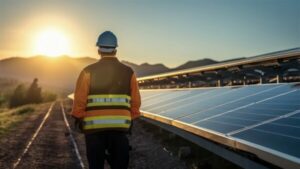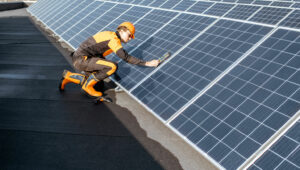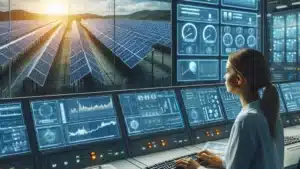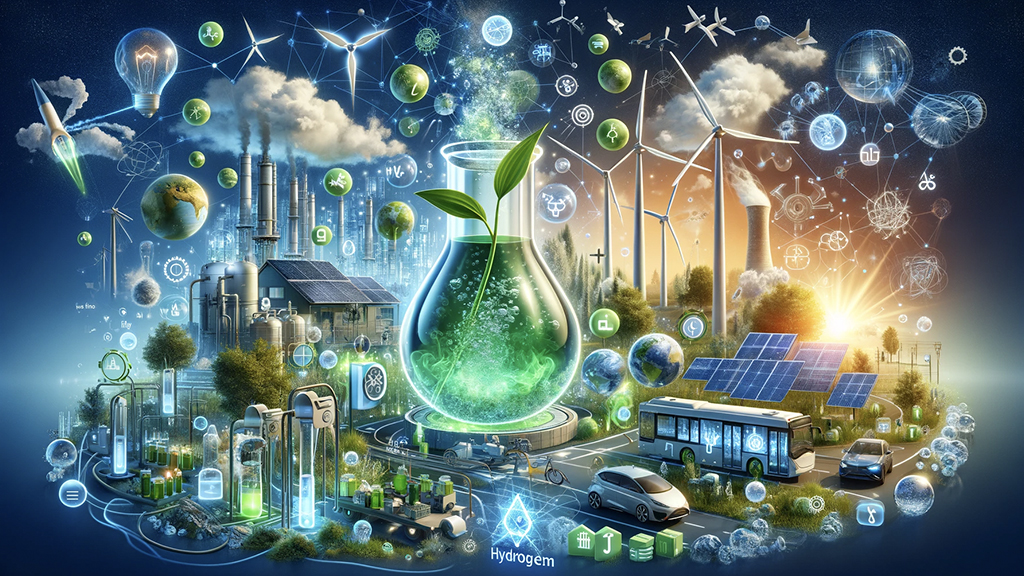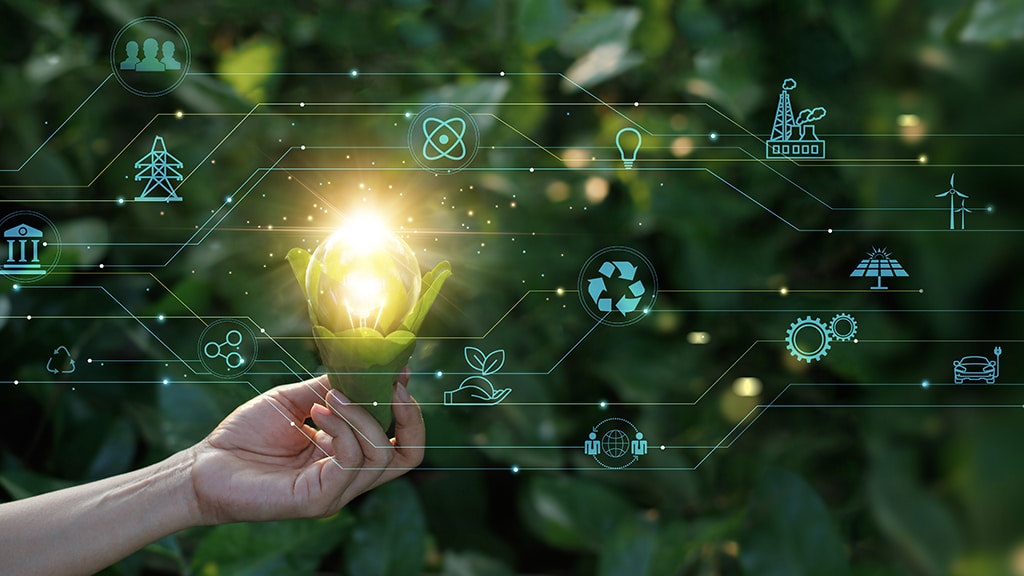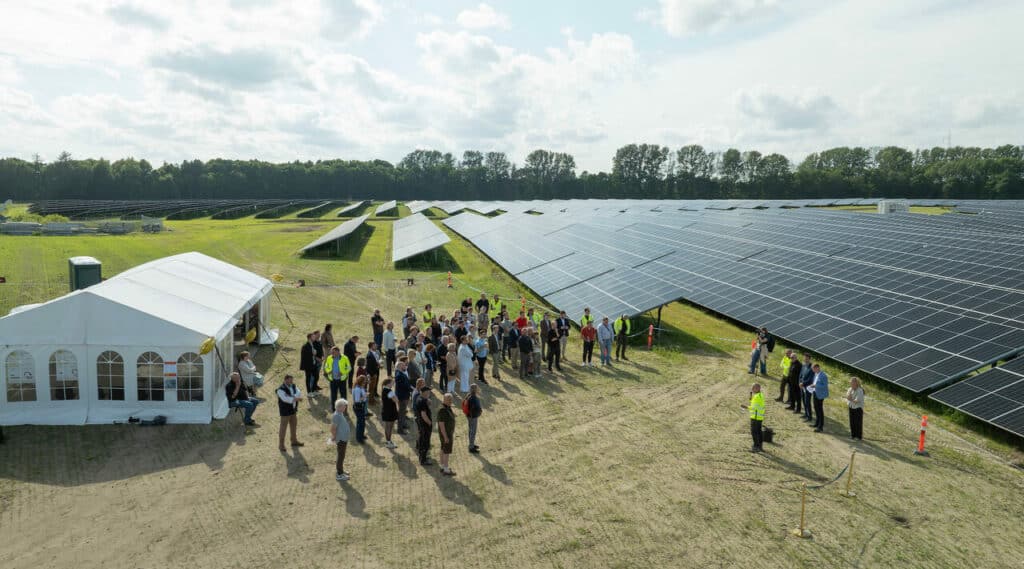I. What are PV panels?
1.1 Definition of Photovoltaic Panels
Photovoltaic panels, also known as PV panels or solar panels, are devices that capture electrical energy from solar radiation. This is achieved by utilizing the photovoltaic effect, where solar photons generate electric current in specialized modules.
Photovoltaic panels (PV) are a technology that is gaining increasing popularity as a means of generating one’s renewable electrical energy. In simple terms, solar panels allow for the transformation of solar energy into electrical energy, which can significantly reduce electricity bills and positively impact the environment.
1.2 Structure of Photovoltaic Panels
PV panels consist of several key components, including:
- photovoltaic cells,
- a direct current to alternating current converter,
- and protective frame.
Each of these components plays a crucial role in the process of converting solar energy into electricity.
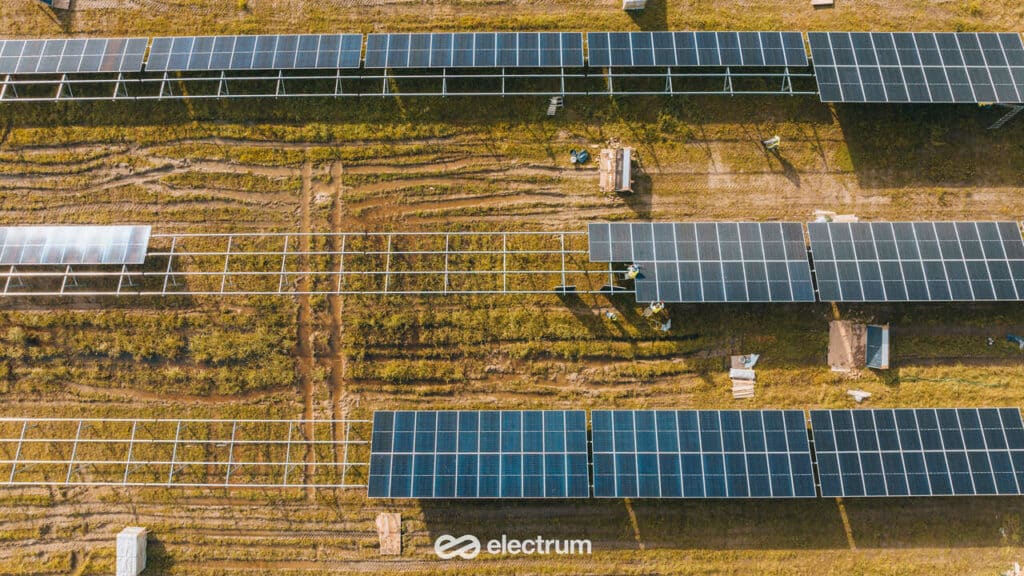
II. How PV Panels Work
2.1 Processing Solar Radiation
The primary function of PV panels is to process solar radiation into electrical energy. This process involves the stimulation of electrons in photovoltaic cells by solar photons, which generates electric current.
2.2 Photovoltaic Modules
Photovoltaic modules are comprised of numerous photovoltaic cells connected into a single unit. These modules are responsible for converting solar energy into electrical energy. It’s essential to understand the differences between monocrystalline, polycrystalline, and amorphous cells, as they impact the efficiency of PV panels.
Solar panels operate based on the photovoltaic effect. This means that after being exposed to sunlight, photovoltaic modules generate electric current. Each panel consists of multiple individual photovoltaic cells, and the entire installation may contain multiple panels connected in one system.
III. Benefits of Using Photovoltaic Panels
3.1 Cost Savings
One of the primary reasons people choose to install solar panels is to reduce their electricity bills. Energy produced by photovoltaic panels can power a household, resulting in substantial long-term savings.
PV panels are an investment that yields financial savings over time. While the initial cost of purchase and installation may be significant, this investment pays off multiple times in the long run. Why? Because solar panels allow for the production of one’s electricity, reducing electricity bills. In some cases, surplus energy can be sold to the grid, generating additional income.
3.2 Environmental Impact
Using solar energy is not only economically beneficial but also environmentally friendly. PV panels do not emit harmful greenhouse gases or other air pollutants, contributing to a reduced impact on climate change.
Photovoltaic panels are environmentally friendly. They utilize solar energy, producing no emissions of harmful greenhouse gases or other air pollutants. Therefore, using solar panels not only leads to financial savings but also actively contributes to environmental protection.
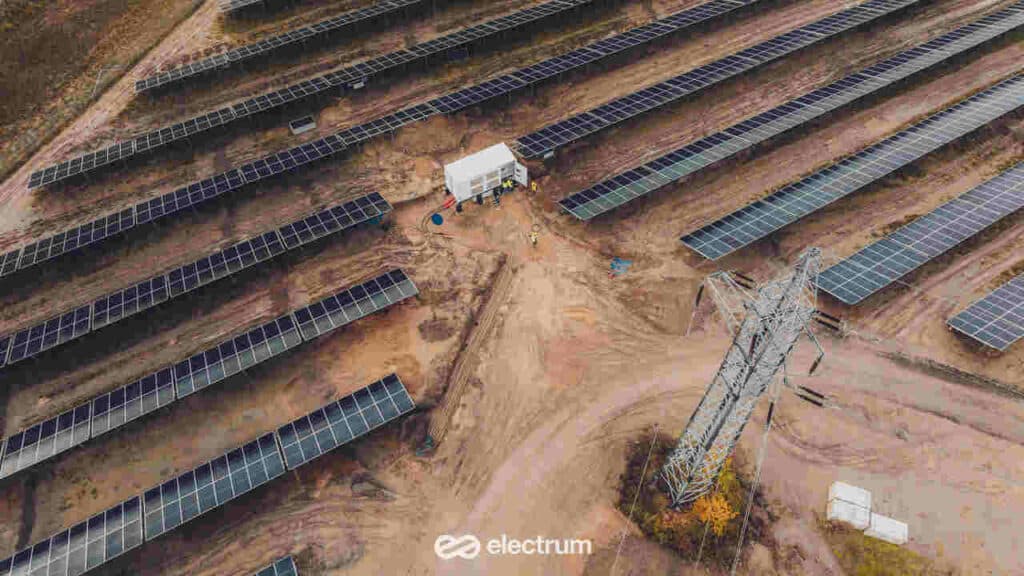
IV. Installation and Maintenance of PV Panels
4.1 PV Panel Installation
PV panel installation is a complex process that requires technical knowledge. Before commencing the installation, it’s necessary to obtain the required permits and conduct a thorough assessment of the installation site.
The PV panel installation process begins with a precise evaluation of the installation site. Specialists take into account the direction and slope of the roof to optimize panel efficiency. Then, PV panels are mounted on an appropriate structure, and the entire system is connected to the electrical grid.
Read also: How to Choose the Best Location for Solar Panels?
4.2 Maintenance and Servicing
Solar panels require regular maintenance to maintain their efficiency at an optimal level. There are also servicing options available to address any breakdowns or installation issues.
PV panel maintenance involves monitoring their performance, cleaning the modules, and checking that all system components are functioning correctly. Regular inspections are advisable to prevent unplanned disruptions in electricity supply.
V. PV Panels and the Future of Energy
5.1 Alternative Energy Systems
Solar panels play a crucial role in the development of alternative energy systems. They are an integral part of the energy transition, reducing dependence on traditional energy sources.
Photovoltaic panels are an essential element of the future of energy. As energy demand grows, and concerns about greenhouse gas emissions rise, PV technology becomes increasingly vital. It contributes to sustainable energy development.
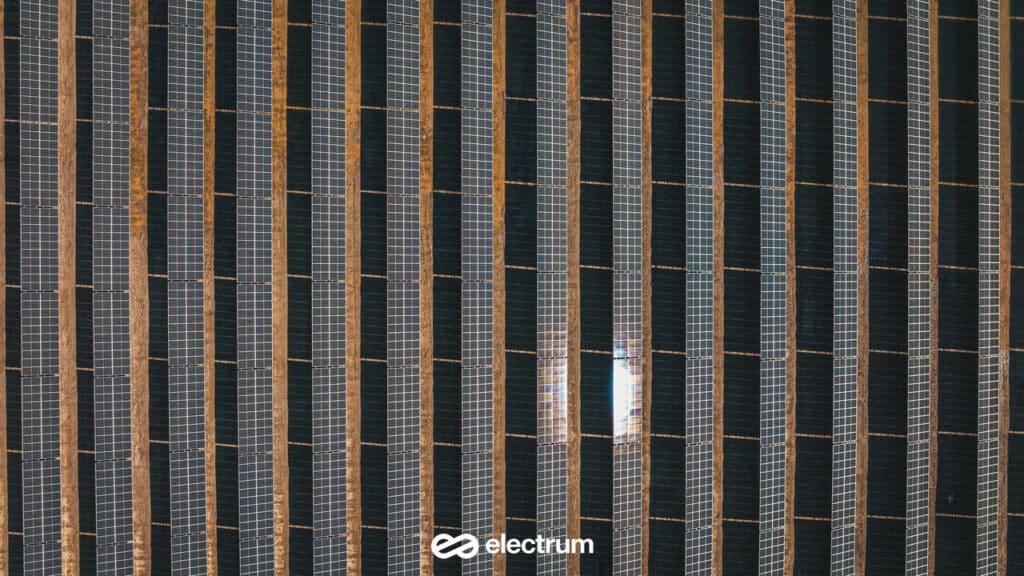
5.2 Climate Tech
In the context of the growing importance of climate technologies, PV panels are a vital component of the fight against climate change. By producing clean energy, they contribute to the protection of the planet.
Photovoltaic panels are part of the trend in climate technologies, aiming to reduce the negative impact of human activities on the environment. This solution combines economic and ecological aspects, creating a win-win situation for users and the planet.
Read also: Climate Tech: Technologies for a Sustainable Future – Electrum Holding
VI. Choosing the Right PV Panels
6.1 Key Selection Criteria
How to choose PV panels? When choosing solar panels, important factors to consider include energy efficiency, performance in various weather conditions, and investment costs.
6.2 Technical Support
Finding the right supplier and technical support is crucial for a successful PV panel installation. A good partner can help in selecting the right system and provide essential post-installation support.
If you need a trusted partner for collaboration, contact us!
In summary, PV panels are an attractive solution from both an economic and ecological perspective. They enable the production of electricity, reducing electricity bills and positively impacting the environment. If you are considering investing in a renewable energy source, photovoltaic panels are worth considering.
VIII. Costs and Return on Investment
8.1 Initial Investment
Investing in PV panels involves initial costs, including panel purchase, installation, inverters, and other accessories. These costs may vary depending on the chosen system and supplier. However, it’s essential to remember that this is an investment that pays off over time.
8.2 Return on Investment (ROI)
The value of PV panels lies not only in electricity production but also in the return on investment. The ROI depends on various factors, including location, panel efficiency, energy prices, and financial support. For many people, the return on investment is achieved in a relatively short period, making solar panels an attractive solution.
IX. Technologies and Trends in PV Panel Development
9.1 Advancements in PV Technology
The photovoltaic industry is continuously evolving, introducing new technologies and improvements that enhance the efficiency of PV panels. One example is PERC (Passivated Emitter Rear Cell) technology, which boosts the efficiency of photovoltaic modules.
9.2 Energy Storage
Energy storage systems has become a significant trend in the energy industry. PV panels allow for the production of surplus energy that can be stored in batteries for use when it’s most cost-effective.
Read also: How Solar plus Storage Systems Work?
X. PV Panels in Poland
10.1 PV Market Development in Poland
The PV panel market in Poland is growing rapidly. The increase in ecological awareness and government support in the form of grant programs have contributed to the popularity of this technology.
10.2 Current Trends
Currently, there is a growing number of households in Poland opting to install PV panels. This demonstrates the increasing awareness of society regarding the use of renewable energy sources.
XI. PV Panels in Industry
11.1 Industrial Utilization
Solar panels are not limited to residential use. An increasing number of companies and industrial facilities are adopting this technology to power their operations, reducing costs and gaining access to green energy.
Read about our project: Electrum has launched Poland’s first hybrid energy-information system, integrating renewable energy sources (RES) and energy storage
11.2 Application in PV Farms
Solar farms encompass extensive areas covered with PV panels, generating substantial energy. They are used to power cities, industrial plants, and other large consumers.
Read more: Solar farm construction: How We Do It at Electrum
XII. The Future of Renewable Energy
12.1 Renewable Energy Sources
Solar panels are one of the elements of the future of renewable energy. Renewable sources are becoming increasingly competitive compared to traditional ones.
12.2 The Role of PV Panels
Photovoltaic panels will play a key role in the energy transformation. As the demand for energy grows, PV technology will be crucial in providing clean energy.
XIII. How to Choose the Optimal PV System
13.1 Consultation with Experts
When choosing the right PV system, it’s advisable to consult with experts who can help select the best solution based on individual needs.
13.2 Efficiency Analysis
It’s worth analyzing thoroughly the benefits that can be achieved by installing PV panels, taking into account local climate conditions, energy prices, and available financial support.
XIV. Summary
PV panels represent an innovative solution with enormous potential in the field of electricity production. Their growing popularity is due to numerous benefits, such as financial savings, a positive environmental impact, and advancing technology.
XV. Frequently Asked Questions
- Is investing in photovoltaic panels profitable in the long run?
- What financial support is available for those choosing to install PV panels?
- Are solar panels environmentally friendly?
- What are the costs and benefits of storing energy generated by photovoltaic panels?
- What future technologies may impact the development of PV panels?
Is investing in solar panels cost-effective in the long term?
Yes, investing in photovoltaic panels is cost-effective in the long term. Although the initial costs may be significant, PV panels allow for the generation of your own electricity, leading to a reduction in electricity bills. In many cases, the return on investment is achieved in a relatively short period.
What financial support is available for those choosing to install PV panels?
In Poland, there are several forms of financial support for individuals installing PV panels. You can take advantage of government programs such as “Mój Prąd” or “Czyste Powietrze,” which offer grants or preferential loans for the installation of photovoltaic panels. Additionally, there are various EU funds and local initiatives supporting renewable energy sources.
Are solar panels environmentally friendly?
Yes, solar panels are environmentally friendly. They harness solar energy without emitting harmful greenhouse gases or other air pollutants. Therefore, using PV panels contributes to the protection of the natural environment and reduces the impact on climate change.
What are the costs and benefits associated with storing energy generated by photovoltaic panels?
The costs of storing energy generated by photovoltaic panels depend on the type and capacity of the storage system. However, energy storage can be cost-effective, allowing you to use your own energy when it is most profitable, such as during peak hours when electricity prices are higher. It also provides energy independence in case of power outages.
What future technologies may impact the development of solar panels?
The future of PV panels is promising, and evolving technologies can enhance their efficiency. One example is PERC (Passivated Emitter Rear Cell) technology, which increases the efficiency of photovoltaic modules. Additionally, energy storage technologies are advancing, enabling even more efficient utilization of energy generated by PV panels.
Considering these answers, the installation of PV panels represents an attractive investment from both an economic and environmental perspective.
Solar panels – an investment in the future
Photovoltaic panels are not just a source of energy but also an investment in the future that can bring many benefits to households, businesses, and the natural environment. If you are considering the installation of PV panels, it is a step toward a more sustainable and economically sound future. Properly adapting solar panels to your needs and local conditions can bring both economic and environmental advantages. Generating your electricity can lower electricity bills and contribute to environmental protection. PV panels are an investment that pays off in the long term while remaining eco-friendly. It’s worth considering the installation of photovoltaic panels as a way to increase energy independence and reduce the impact on climate change.

